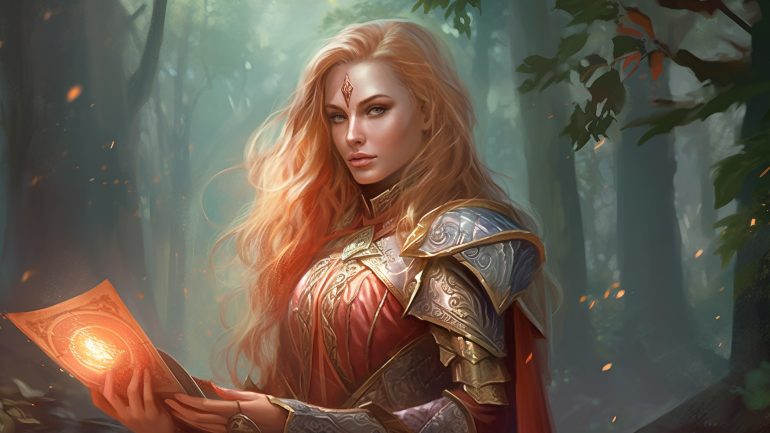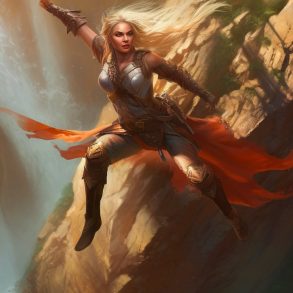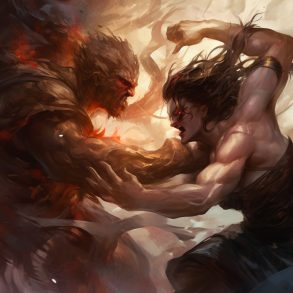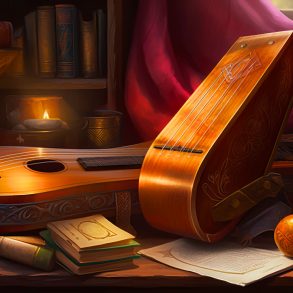Creating a Dungeons and Dragons character is an exciting and rewarding experience that allows players to explore a fantastical world filled with adventure and danger. At the heart of any DnD character are the core stats, which represent a character’s physical, mental, and social attributes. These stats have a significant impact on a character’s abilities and attributes, affecting combat, skill checks, and spellcasting. In this article, we will explore the six character stats in DnD 5E, explaining what they are, how they work, and how players can use them to create well-rounded and effective characters. Whether you’re a new player or a seasoned veteran, understanding the core stats is essential for creating a character that can survive and thrive in the world of Dungeons and Dragons.
What are character stats?
In DnD, the core character stats (also known as ability scores) are the foundation of a character’s abilities and attributes. There are six character stats: Strength, Dexterity, Constitution, Intelligence, Wisdom, and Charisma.
Each character stat has a score ranging from 1 to 20, with 10 being considered average. When creating a character, players roll dice or use a point-buy system to determine their core stat scores. These scores affect a variety of aspects of the game, including combat, skill checks, and spellcasting.
- Strength: Strength measures a character’s physical power and ability to perform feats of strength. Characters with high strength scores are able to deal more damage in melee combat, carry heavier objects, and break through obstacles.
- Dexterity: Dexterity measures a character’s agility, reflexes, and hand-eye coordination. Characters with high dexterity scores are able to dodge attacks, move quickly, and perform feats of acrobatics.
- Constitution: Constitution measures a character’s overall health, endurance, and physical toughness. Characters with high constitution scores are able to withstand more damage, resist poisons and diseases, and maintain concentration when casting spells.
- Intelligence: Intelligence measures a character’s intellect, knowledge, and problem-solving ability. Characters with high intelligence scores are able to recall information, solve puzzles, and cast spells that require complex calculations.
- Wisdom: Wisdom measures a character’s perception, intuition, and ability to understand others. Characters with high wisdom scores are able to notice details, read people’s intentions, and cast spells that require a connection to nature or spiritual forces.
- Charisma: Charisma measures a character’s charm, confidence, and social skills. Characters with high charisma scores are able to persuade and influence others, make good first impressions, and cast spells that manipulate emotions or thoughts.
DnD character stats and modifiers
The six character stats are represented by a score ranging from 1 to 20, with 10 being considered average. Here is a breakdown of what each score represents:
| Score | Modifier | Description |
|---|---|---|
| 1 | -5 | Extremely weak, almost non-functional. |
| 2-3 | -4 | Very weak, barely functional. |
| 4-5 | -3 | Very poor, significantly below average. |
| 6-7 | -2 | Poor, below average. |
| 8-9 | -1 | Slightly below average. |
| 10-11 | 0 | Average, no bonus or penalty. |
| 12-13 | +1 | Above average. |
| 14-15 | +2 | Very good, significantly above average. |
| 16-17 | +3 | Excellent, exceptional. |
| 18-19 | +4 | Superb, almost superhuman. |
| 20 | +5 | Peak of human ability, almost supernatural. |
When rolling dice to determine a character’s core stat scores, players typically roll 4 six-sided dice and drop the lowest roll to create a score between 3 and 18. Alternatively, players can use a point-buy system to assign scores based on a predetermined point value.
In the game, core stat scores are used to determine a character’s modifier, which is added to any roll that uses that core stat. For example, a character with a Strength score of 16 would have a Strength modifier of +3, which would be added to any attack or damage roll that uses Strength.
By understanding the core stats and their corresponding scores and modifiers, players can create well-rounded characters that are effective in a variety of situations.
Proficiency in DnD character stats
Proficiency is a mechanic in Dungeons and Dragons that represents a character’s training and experience in a particular skill or ability. A character who is proficient in a specific skill or ability gains a bonus to their roll when they use that skill or ability.
In regards to the core stats, proficiency can also apply to a character’s core stat rolls. A character who is proficient in a core stat gains a bonus to their rolls that use that stat. For example, a character who is proficient in Strength will gain a bonus to their attack and damage rolls when using melee weapons, or when attempting to break down a door or lift a heavy object.
The amount of proficiency bonus a character receives is determined by their character level and proficiency level. As a character gains levels, their proficiency bonus increases, allowing them to become more skilled and effective in their chosen abilities and attributes.
Players can gain proficiency in a skill or core stat in several ways. Some character classes, such as the Fighter or the Rogue, gain proficiency in certain skills and core stats as part of their class features. Additionally, players can choose to gain proficiency in a skill or core stat when they gain a level or through the use of certain feats.
DnD character stats in combat
The core stats in Dungeons and Dragons have a significant impact on combat, influencing a character’s ability to deal damage, avoid attacks, and survive in battle. Here’s a breakdown of how each core stat affects combat:
- Strength: Characters with high Strength scores are able to deal more damage in melee combat, as their attacks are more powerful. Additionally, characters with high Strength scores are able to carry heavier weapons and armor, allowing them to deal more damage and stay protected in battle.
- Dexterity: Characters with high Dexterity scores are able to avoid attacks more easily, as they are more agile and able to dodge out of the way. Additionally, characters with high Dexterity scores are able to use ranged weapons more effectively, as they have better aim and can reload more quickly.
- Constitution: Characters with high Constitution scores are able to withstand more damage, as they are more physically tough and resilient. Additionally, characters with high Constitution scores are able to resist the effects of poisons and diseases, and are less likely to be knocked unconscious in battle.
- Intelligence: Characters with high Intelligence scores are able to use their spells and abilities more effectively in combat, as they are better able to strategize and plan their moves. Additionally, characters with high Intelligence scores may be able to identify weaknesses in their opponents, allowing them to exploit those weaknesses in combat.
- Wisdom: Characters with high Wisdom scores are able to perceive their surroundings more effectively, allowing them to notice hidden threats and avoid surprise attacks. Additionally, characters with high Wisdom scores may be able to anticipate their opponents’ moves, allowing them to act more quickly and effectively in combat.
- Charisma: Characters with high Charisma scores are able to influence others more effectively in combat, allowing them to persuade enemies to surrender or allies to fight harder. Additionally, characters with high Charisma scores may be able to intimidate their opponents, causing them to lose their nerve or hesitate in battle.
DnD character stats and magic
The core stats in Dungeons and Dragons also have a significant impact on magic, affecting a character’s ability to cast spells, their spellcasting ability, and the effectiveness of their spells. Here’s a breakdown of how each core stat affects magic:
- Intelligence: Characters with high Intelligence scores are able to cast spells more effectively, as their spellcasting ability is tied to their Intelligence score for certain spellcasting classes, such as wizards. Additionally, characters with high Intelligence scores are able to understand and memorize more spells, allowing them to cast a wider variety of spells and better anticipate their opponents’ moves.
- Wisdom: Characters with high Wisdom scores are able to cast spells that draw on their connection to nature or spiritual forces more effectively, as their spellcasting ability is tied to their Wisdom score for certain spellcasting classes, such as druids or clerics. Additionally, characters with high Wisdom scores may be able to perceive magical auras or detect hidden magical effects.
- Charisma: Characters with high Charisma scores are able to cast spells that manipulate emotions or thoughts more effectively, such as spells that charm or intimidate their opponents. Additionally, characters with high Charisma scores may be able to cast spells that influence larger groups of people, such as spells that cause mass panic or inspire great courage.
- Strength, Dexterity, and Constitution: These core stats generally do not affect a character’s spellcasting ability directly. However, they can still have an impact on a character’s ability to cast spells effectively. For example, a character with low Constitution may be more vulnerable to interruptions while casting a spell, while a character with high Dexterity may be able to cast spells while dodging attacks or moving quickly around the battlefield.






